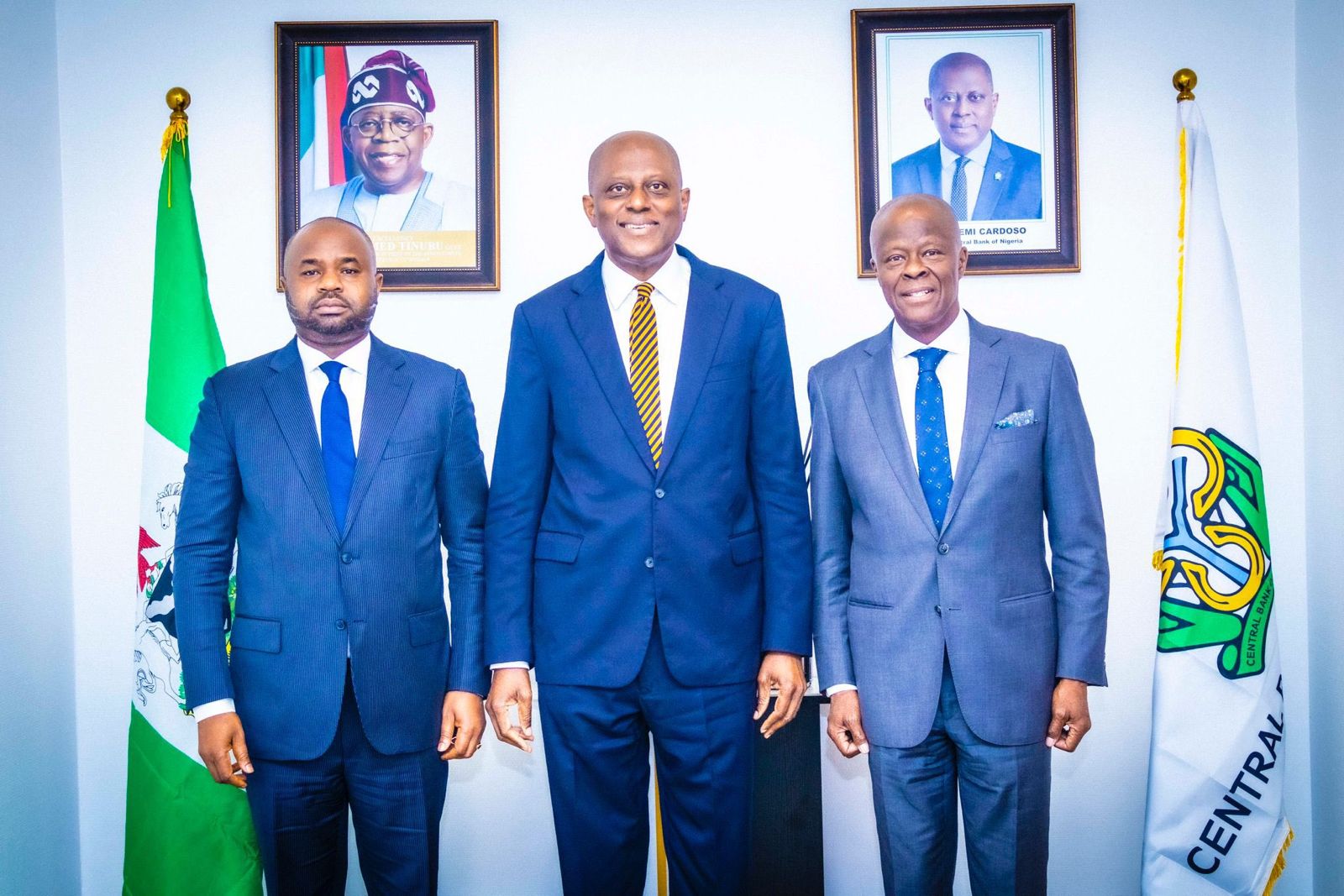In a move aimed at reinforcing Nigeria’s macroeconomic stability and accelerating the country’s reform agenda, the Minister of Finance and Coordinating Minister of the Economy, Mr. Wale Edun, on Tuesday held a crucial strategy session with the Governor of the Central Bank of Nigeria (CBN), Dr. Olayemi Cardoso. The meeting, which took place at the apex bank’s headquarters in Abuja, also had in attendance the Executive Chairman of the Federal Inland Revenue Service (FIRS), Dr. Zacch Adedeji.
The closed-door meeting, which brought together key players in Nigeria’s economic management team, focused on fostering stronger synergy between monetary and fiscal authorities—an imperative step as the country continues to navigate complex economic challenges including inflationary pressures, currency volatility, and sluggish private sector credit growth.
Sources familiar with the deliberations confirmed that the high-level talks revolved around strengthening coordination mechanisms that would ensure policy alignment in areas such as inflation control, public revenue generation, exchange rate management, and strategic lending to productive sectors of the economy. The overarching goal, officials say, is to create a stable and predictable economic environment that boosts investor confidence and drives inclusive growth.
Mr. Edun emphasized during the meeting that seamless collaboration between the fiscal and monetary arms of government remains pivotal to the success of President Bola Ahmed Tinubu’s Renewed Hope agenda, particularly in achieving sustainable economic reforms, increasing non-oil revenue mobilisation, and ensuring fiscal discipline.
He noted that bridging the gap between fiscal spending and monetary control would play a major role in taming inflation—which reached 24.08% earlier this year—as well as in easing pressure on the naira. In his words, coherent policymaking is necessary “to ensure that resources are channelled into sectors that boost production, create jobs, and stimulate long-term growth.”
Dr. Cardoso, on his part, reiterated the CBN’s commitment to maintaining price stability and promoting sound monetary policies that complement the government’s economic priorities. He acknowledged that monetary policy cannot operate in isolation and expressed optimism that the ongoing collaboration with the Finance Ministry and FIRS will enhance policy effectiveness and overall economic resilience.
Also contributing to the dialogue, Dr. Zacch Adedeji stressed the importance of efficient revenue generation as a backbone for fiscal sustainability. He disclosed that the FIRS is already implementing measures aimed at widening the tax net and improving collection efficiency without overburdening the average Nigerian.
Economic observers say the meeting signals a renewed focus on coherence and accountability in policy formulation—two areas that have, in the past, suffered from institutional silos and overlapping mandates. With the economy at a critical juncture and international financial institutions urging reform consistency, the alignment of Nigeria’s economic managers could serve as a foundation for turning the corner on fiscal fragility.
The meeting comes at a time when the Tinubu administration is ramping up its economic reform drive, including fuel subsidy removal, exchange rate unification, and renewed efforts to attract foreign direct investment (FDI). Analysts believe that such inter-agency cooperation will be essential for translating macroeconomic reforms into tangible benefits for citizens, particularly in terms of inflation relief, job creation, and poverty reduction.
While specific policy adjustments from the meeting have yet to be made public, officials confirmed that follow-up engagements and technical working groups will be activated to ensure that agreements reached are effectively implemented in the coming weeks.
As the economic team continues to meet behind the scenes, stakeholders across the private and public sectors will be watching closely to see how this coordination influences Nigeria’s short- and long-term economic trajectory.
Business
Economy
Finance Minister, CBN Boss, FIRS Chief Hold Talks to Strengthen Economic Policy Coordination
- by Balogun Monsurudeen.F.
- August 20, 2025
- 0 Comments
- 2 minutes read
- 2 Views
- 5 hours ago

